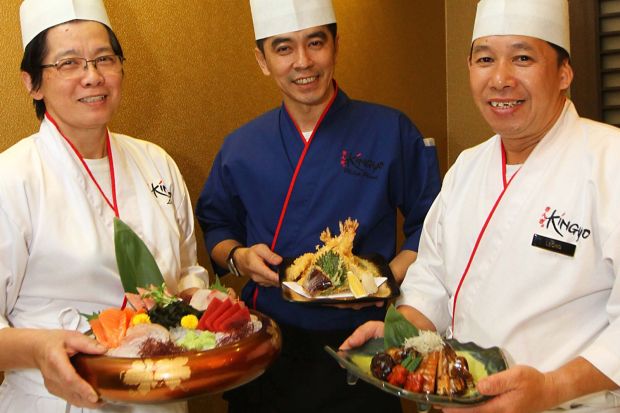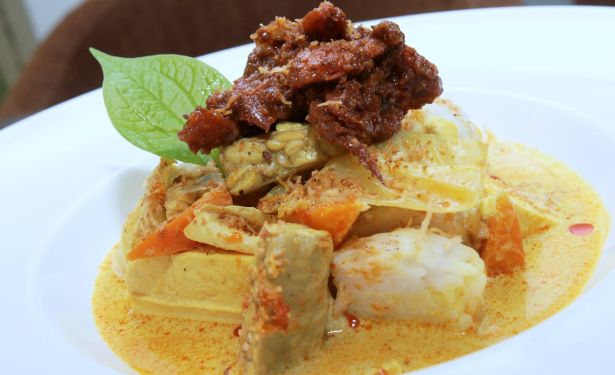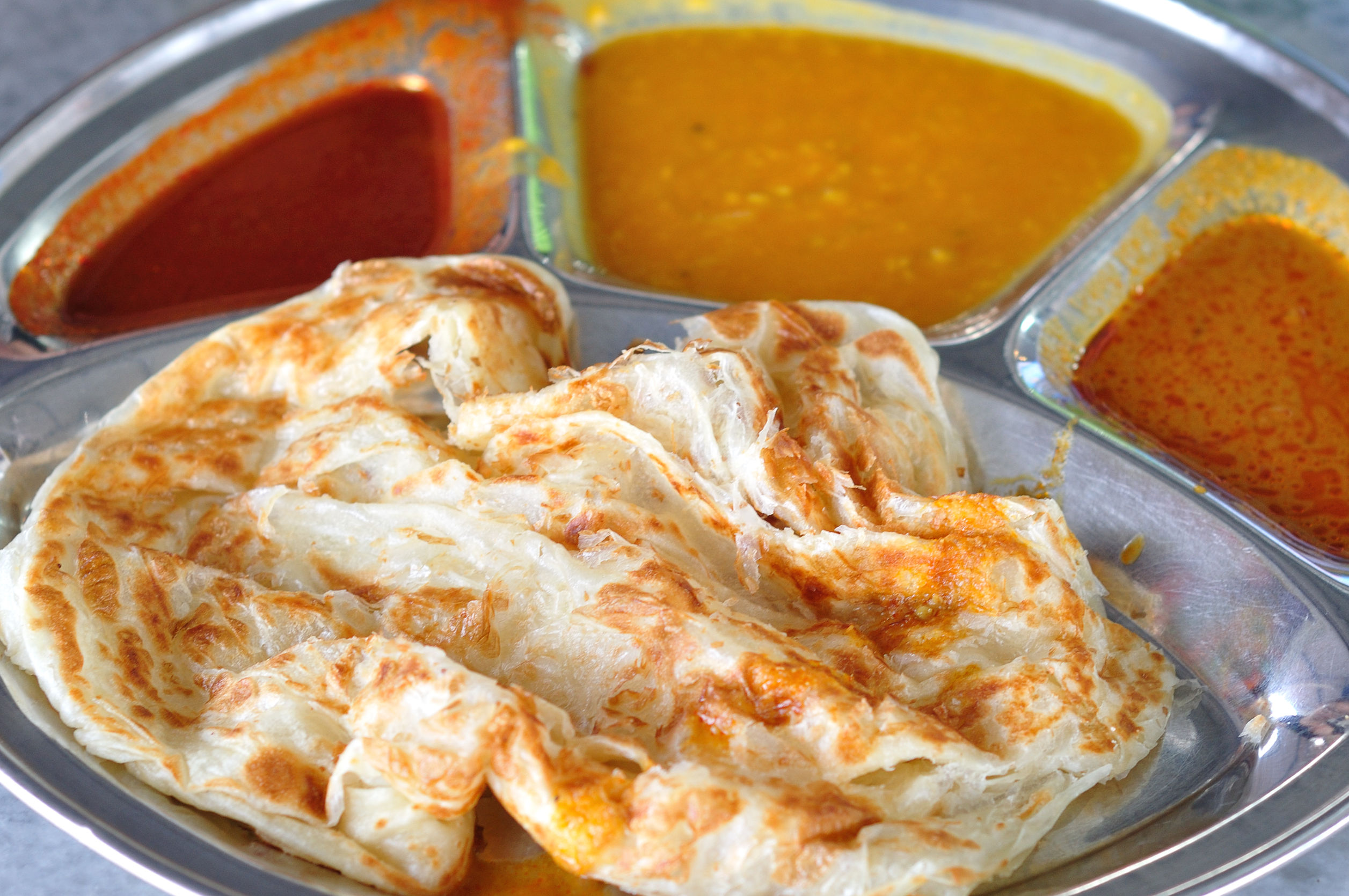Lot G-05 and G-05A,
Ground Floor, Life Centre,
Jalan Sultan Ismail, Kuala Lumpur.
Tel: 03-2163 7888
Business Hours: (Lunch) Noon to 2.30pm;
(Dinner) 6.00pm to 10.00pm
Website: www.kingyo.com.my.
WHEN a well-known restaurant in Hotel Equatorial Kuala Lumpur closed its doors in April last year, many of its staff began looking for another restaurant to call “home”.
This included a group of chefs who realised it was not as easy as they thought it would be, especially a suitable place with the same group of friendly colleagues they used to have.
Chef Liew Swee Keow said she kept stumbling upon loyal customers who asked where she was working at as they were craving for the sushi dishes she used to make.
The truth, Liew said, was difficult to reveal as most of the staff were unemployed and unsure of where they were heading.
“We had been working together for so long and it just didn’t feel right to be separated. So we looked for a place where we could all be united again,”said Liew, 56, when met at the five-month-old Kingyo Japanese restaurant, just a stone’s throw away from their former workplace.
For Liew, it was truly a blessing when she was approached by the restaurant?s managing director Jasmine Loh, who wanted to open a Japanese restaurant and was looking for suitable chefs like her.
The rest, as they say, is history as not only Liew, who is known for her sashimi and sushi dishes, came onboard, but her former colleagues chef Philip Phuah and chef Leong Chee Leng followed too.
At Kingyo, customers can expect some similarities with the dishes that had been served at Hotel Equatorial, in addition to a number of new creations.
During a review recently, the trio whipped up their best dishes, starting with the Sashimi Platter comprising freshly cut slices of toro (tuna belly), tai (sea bream), shake (salmon), maguro (tuna) and kampachi (amber jack).
Most of the fishes are flown in from Japan twice a week, thus one can expect the freshest selections at the restaurant.
Having worked in Japan for nine years, Liew regards the experience as an important period in her life as she had to learn how to prepare sushi and sashimi from scratch.
“In Japan, getting someone to teach you to learn is not easy because everyone wants to be the best sushi chef in the country,” said Liew, who returned home in 1995 to work in the hotel line for 17 years.
For a taste of sushi, Liew made us the Avocado Reversed Maki (reverse roll with avocado, tuna, salmon, cucumber and fish, topped with mayonnaise) and the Soft Kani Maki (soft shell crab roll), which was generously stuffed with crab and cut in big, chunky pieces. It is possibly one of the best I have eaten by far.
Perak-born chef Phuah, whose speciality are teppanyaki dishes, shared three creations ? the Karatsuki Hotate (grilled fresh scallops with shell) and my favourites, Gyuniku Enoki Maki (rolled beef with straw mushrooms) and Prawn De France (grilled prawns topped with homemade mayonnaise), which is also Phuah’s signature dish.
His creations don’t end there, as the 49-year-old also makes great dessert pancakes and ice creams.
For warm dishes, do look out for chef Leong’s Hamachi Kabutoni (simmered yellow-tail fish head).
The restaurant also serves buffet lunch on weekends and public holidays, priced at RM68++ per person, from 11.30am until 2.30pm.
Unlike regular buffets, customers can order as many dishes from the menu as they want and the chefs will then prepare them a la minute. These include sashimi and sushi dishes such as shake (salmon), maguro (tuna), tako (octopus), aori ika (squid), ebi (baked prawn) and abura bozu (butter fish).
There are also assorted rolls and hand rolls such as the California Temaki (California roll), Soft Kani Maki (soft shell crab roll), Tempura Maki (tempura roll) and Reverse Maki (crabstick, cucumber and flying fish roll).
Kingyo also serves tempura (deep fried in batter), teppanyaki (grilled hot plate), musho mono (steamed hot dishes) and menrui (noodles).
This is the writer’s personal observation and is not an endorsement by StarMetro.






